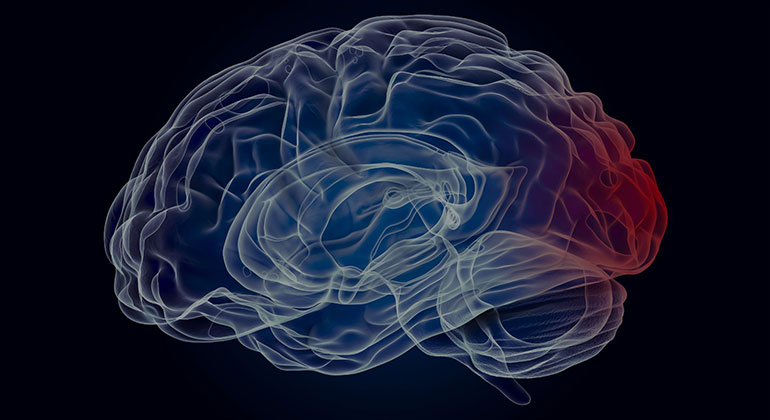AMPLab

Problem
Traditional interventions focus on painful tissue. They can be helpful but have limited efficacy and can involve multiple side effects and health risks (e.g., addiction, overdose).
Solution: A New Tool Belt
Alternative or complementary brain-focused evidence-based approaches involve:
- Virtual reality
- Noninvasive brain stimulation
- Wearable devices
We are a hybrid clinical and research innovation center that both investigates and implements advanced neurotechnologies that can help with chronic pain. We use evidence-based principles and create personalized clinical programs. The technologies we deploy help modulate the central nervous system to reduce the effect of chronic pain.
Disclaimers: Some of these therapies are not approved by the U.S. Food and Drug Administration (FDA) as pain-relief treatments. Not all patients respond equally to these therapies. We do not guarantee pain relief. As with all forms of medical treatment, some patients recover and others do not. A detailed evaluation will determine if these approaches are a good option, and what is the optimal protocol for your individual needs.
Technologies We Use
We use a number of technologies in our research and clinical care. These include:
- Noninvasive Brain Stimulation with rTMS: rTMS stands for repetitive transcranial magnetic stimulation. It has been shown to be a safe and well-tolerated procedure that can help patients with neurological and psychiatric disorders.
- It has been approved by the FDA as treatment for depression in adults.
- Although it is not currently FDA-approved for pain relief treatment, noninvasive brain stimulation with rTMS has shown promising results in multiple clinical trials. Trials reported strong, Level A evidence of the efficacy of high-frequency rTMS of the primary motor cortex for neuropathic pain.
- A detailed evaluation will determine if rTMS is safe.
- Immersive Virtual Reality: This computer-generated 3D environment is displayed in a head-mounted device that surrounds the user with a 360-degree virtual scene. Scientific evidence has shown that video reality (VR) can be used for pain modulation in several ways. It works by:
- Distracting the brain's attention away from painful sensations
- Eliciting a meditative state through dynamic breath work and enteroception (mindfulness) exercises
- Rebuilding a healthy mind-body connection through multisensorial environments (using embodiment of virtual body parts to modulate areas of the brain involved with pain processing)
- Supporting motor learning and neurological reorganization at the brain level
- Dessintey: Provides intensive visuomotor stimulation so people with some neurological deficits (after stroke or complex regional pain syndrome) can improve their sensory-motor skills.
- TrainPain: Delivers sensory rehabilitation through an interactive game experience, so patients can reduce the effect of chronic, persistent pain.
Additional Digital Health and Wellness Technologies
Mobile health technologies use mobile applications, gadgets, or wearable devices with a therapeutic purpose. At AMPLab, we incorporate the latest technologies in the treatment plan for a digital home experience. We use these therapies based on the patient’s clinical needs and personal goals.
Clinical Trials
We have concluded one clinical trial, in association with Sana Health, and have one active clinical trial in association with SimpleTherapy